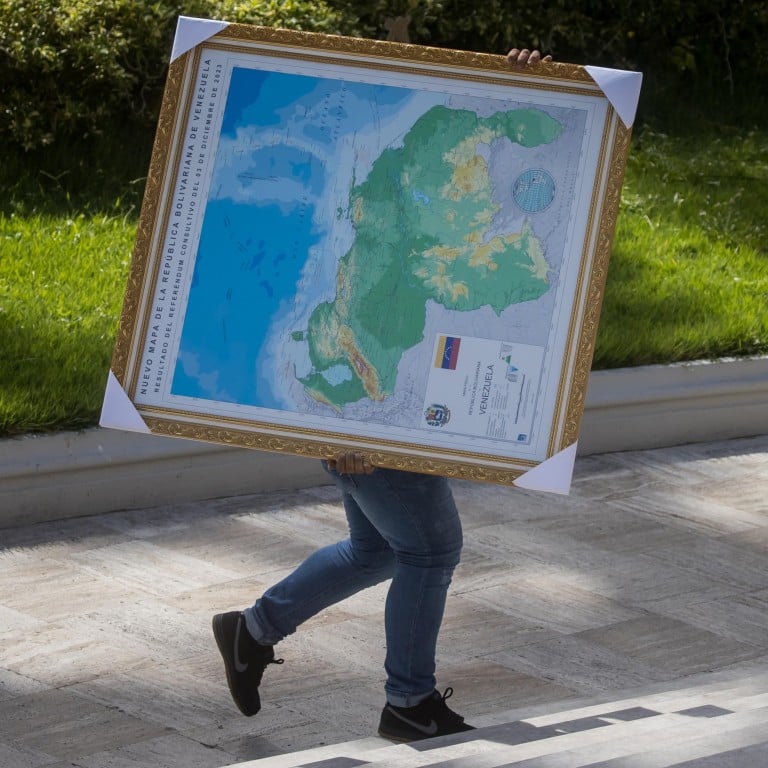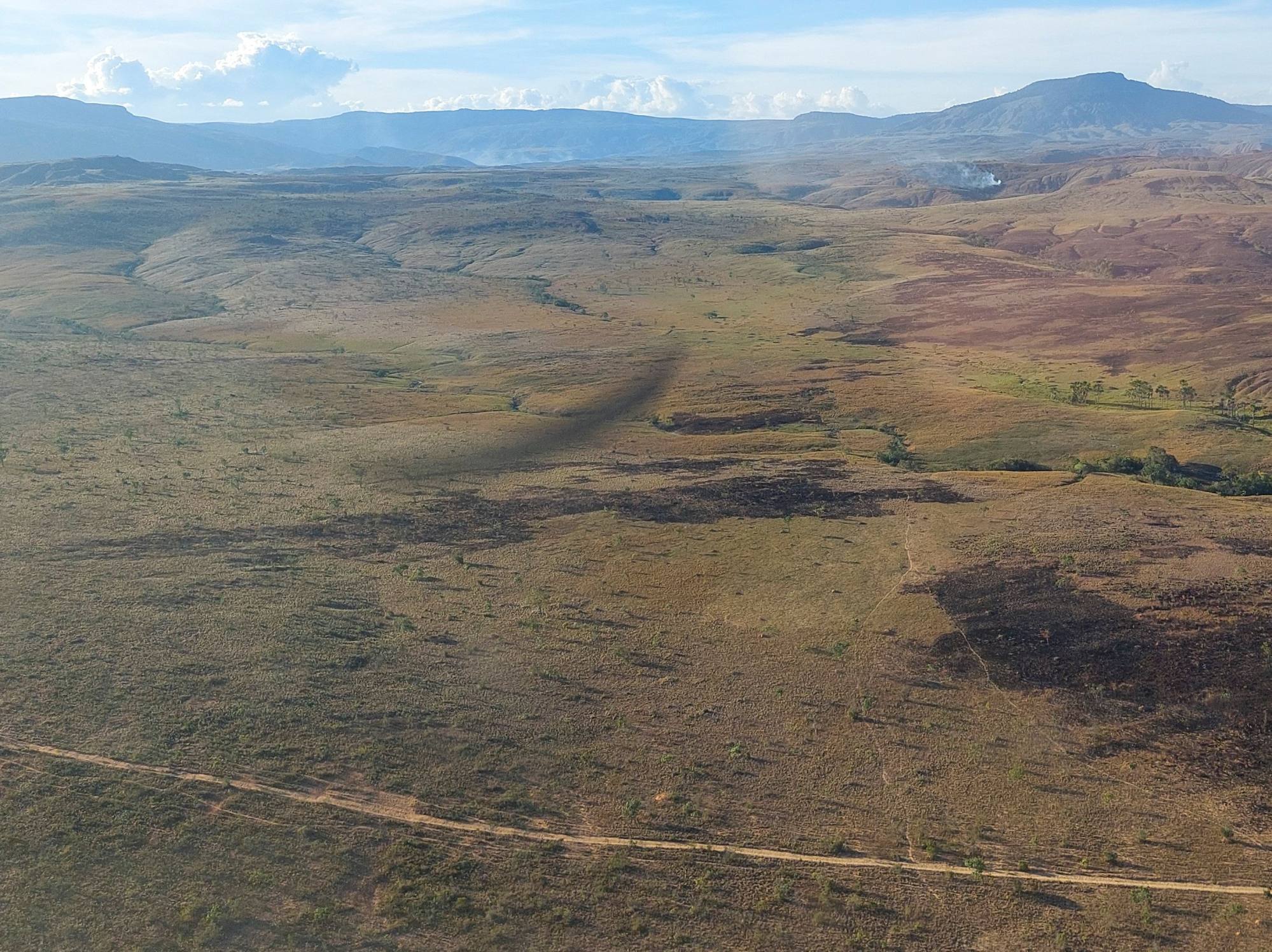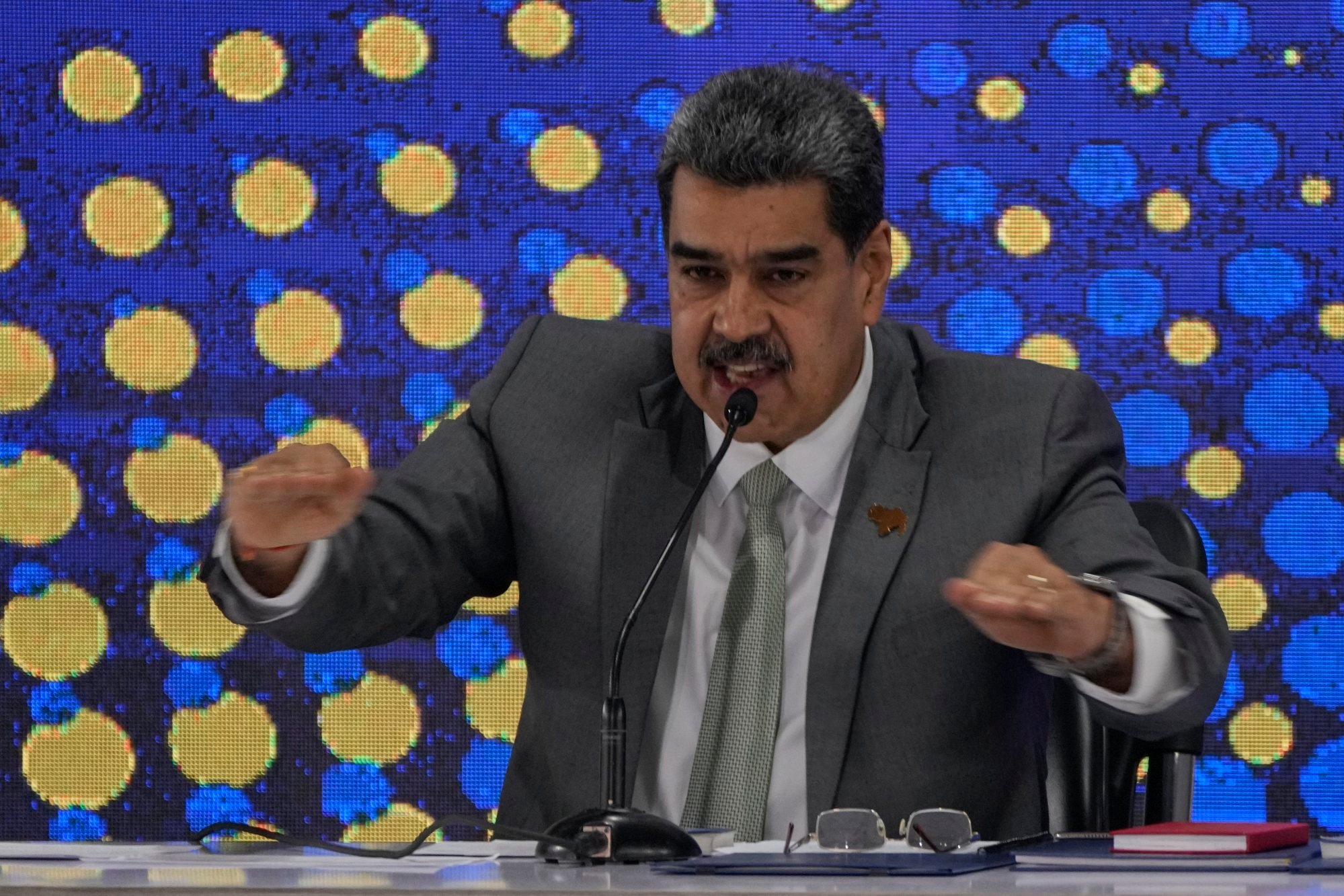
Guyana-Venezuela border tensions soar over disputed oil-rich Essequibo region
- UN to hold emergency meeting at Guyana’s request on Venezuelan claim to a vast oil-rich Essequibo region
- Region abuts the border with Venezuela, which wants to grant exploration licenses for oil deposits there
Calls mounted for calm to prevail as Venezuela said it saw a “provocation” in joint US-Guyana military exercises and vowed to pursue the “recovery” of an oil-rich region both neighbours claim as their own.
The UN Security Council called an urgent meeting for Friday on the fast-escalating row that Guyana said “threatens international peace and security”.
The United States, through National Security Council spokesman John Kirby, on Thursday urged the sides to find a diplomatic solution to the territorial dispute, saying “we don’t want to see this come to blows”.
But Washington provoked an angry response from Caracas by announcing via the embassy in Georgetown it would hold joint “flight operations within Guyana” as part of “routine engagement and operations to enhance security partnership” with its ally.
“This unfortunate provocation by the United States in favour... of ExxonMobil in Guyana is another step in the wrong direction,” Venezuelan Defence Minister Vladimir Padrino Lopez said on X.
He added: “We will not be diverted from our future actions for the recovery of the Essequibo”, where the US oil giant has discovered crude.
Venezuelans vote to back sovereignty claim over swathe of Guyana
The Essequibo region has been administered by Guyana for over a century and is the subject of border litigation before the International Court of Justice (ICJ) in The Hague.
It comprises some two-thirds of Guyanese territory and is home to 125,000 of the country’s 800,000 citizens, but is also claimed by Venezuela, which does not recognise the ICJ’s jurisdiction and is seeking to bring the area under its rule.
In Brazil, President Luiz Inacio Lula da Silva voiced “growing concern” about the rising tension on his country’s northern border.
Lula told a summit of the Mercosur South American bloc: “If there’s one thing we don’t want here in South America, it’s war”.
The regional group, comprised of Argentina, Brazil, Paraguay and Uruguay, later issued a statement urging Georgetown and Caracas to seek a peaceful solution and warning against “unilateral actions”. It was also signed by Chile, Colombia, Ecuador and Peru.
The Brazilian army said Wednesday it was reinforcing its presence in two northern cities.

British Foreign Secretary David Cameron also warned Venezuela on Thursday not to take “unilateral action” in the dispute. Guyana is an English-speaking former colony of Britain and of the Netherlands.
Cameron spoke in Washington after a meeting with Secretary of State Antony Blinken, who in a phone call with Guyana’s President Irfaan Ali Wednesday reaffirmed the United States’ “unwavering support for Guyana’s sovereignty”.
Asked Thursday how far Washington would go in supporting Guyana, Kirby said he did not want to “speculate about that kind of thing”.
Venezuela’s President Maduro seeks Chinese money to revive country’s oil sector
Maduro’s 2018 reelection was rejected by the United States and dozens of other nations as fraudulent. He is widely expected to seek a third consecutive term in elections next year.
Guyana insists Essequibo’s frontier was determined by an arbitration panel in 1899.

But Venezuela claims the Essequibo River to the region’s east forms a natural border recognised as far back as 1777.
China, a close ally of Venezuela and its main creditor, said on Wednesday that both countries were “good friends” of Beijing and it supported the resolving of their border issues.
Beijing “has consistently supported Venezuela and Guyana in properly resolving questions about border delineations”, foreign ministry spokesperson Wang Wenbin said in a statement.
“This accords with the interests of the two countries’ peoples, and is also conducive to stability, cooperation and development in Latin America and the Caribbean region.”
Supertanker chartered by Polish firm to load Venezuelan oil for China
The long-running dispute has intensified since ExxonMobil discovered oil there in 2015, and Caracas called a referendum after Guyana started auctioning off oil blocks in the region in August.
Among other questions, participants in Sunday’s plebiscite were asked whether Venezuelan citizenship should be granted to the English-speaking people, currently Guyanese, of a new “Guyana Esequiba State” and “consequently incorporating said State on the map of Venezuelan territory”.
Officials in Caracas said 95 per cent of voters supported the measures.
Two days after the vote, Maduro proposed a bill to create a Venezuelan province in Essequibo and ordered the state oil company to issue licenses for extracting crude in the region.
Ali protested a “direct threat” against his country.
Guyana’s armed forces were on “alert”, Ali said in a rare address to the nation late Tuesday, and in contact with “partners” including the United States.
On Thursday, Guyana said an army helicopter had been found after it went missing the day before in a dense, mountainous zone near the border.
Five of the seven soldiers aboard were dead, Ali said on Instagram.
The army, which said Wednesday there was “no information to suggest” Venezuela was involved, announced it had opened an investigation into the crash, which took place in bad weather.

.png?itok=arIb17P0)